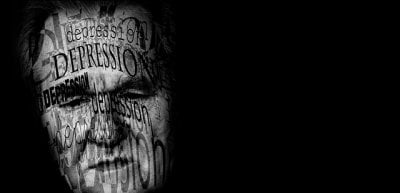Nelson Vergel
Founder, ExcelMale.com
Ford AH, Yeap BB, Flicker L, et al.
Prospective longitudinal study of testosterone and incident depression in older men: The Health In Men Study.
Psychoneuroendocrinology 2015;64:57-65. http://www.sciencedirect.com/science/article/pii/S0306453015300123

Highlights
· Depression in older men has been associated with low circulating testosterone but data from prospective studies is limited and no previous studies have included data on testosterone’s bioactive metabolites (dihydrotestosterone and estradiol).
· Longitudinal, prospective study of 3179 older men followed up for nearly 10 years.
· Low serum testosterone was associated with an 86% increased hazard of depression (HR 1.86, 95%CI 1.05–3.31) once relevant demographic, clinical and biochemical factors were taken into account.
· Serum dihydrotestosterone, estradiol and calculated free testosterone were not associated with risk of depression.
· Clinical trials of testosterone treatment in older men without pathological hypogonadism are needed to determine if testosterone has a role in treating and/or preventing depression in later life.
BACKGROUND: Depression in older men has been associated with low circulating testosterone concentration but data from prospective studies are limited.
METHODS: We conducted a prospective longitudinal study in a community representative cohort of 3179 older men free of clinically significant depressive symptoms at baseline. The main objective of this study was to determine if low serum testosterone, dihydrotestosterone and estradiol concentrations are associated with the development of depressive symptoms. Incident depression was assessed with the Patient Health Questionnaire and via an electronic health record database (The West Australian Data Linkage System).
The main exposures of interest were serum testosterone, dihydrotestosterone and estradiol measured by liquid chromatography-mass spectrometry and calculated free testosterone in baseline blood samples (collected between 2001 and 2004).
RESULTS: One hundred and thirty five men (4.2%) developed depression over a median follow up time of 9.4 years (range 8.4-10.9). Men with incident depression were older (median age 77.7 vs 76.1 years, z=-3.82, p=0<0.001) and were more likely to have cardiovascular disease (43.0% vs 32.6%, chi2=6.32, p=0.012) and diabetes (22.2% vs 13.2%, chi2=8.95, p=0.003).
Low serum total testosterone (<6.4nmol/L) was associated with incident depression (HR 2.07, 95%CI 1.17-3.68) and this remained significant after adjustment for relevant potential confounding factors (HR 1.86, 95%CI 1.05-3.31). Low serum dihydrotestosterone, estradiol and calculated free testosterone were not associated with risk of depression.
CONCLUSIONS: Low serum total testosterone, but not calculated free testosterone, was associated with incident depression in this sample of older men.
Prospective longitudinal study of testosterone and incident depression in older men: The Health In Men Study.
Psychoneuroendocrinology 2015;64:57-65. http://www.sciencedirect.com/science/article/pii/S0306453015300123

Highlights
· Depression in older men has been associated with low circulating testosterone but data from prospective studies is limited and no previous studies have included data on testosterone’s bioactive metabolites (dihydrotestosterone and estradiol).
· Longitudinal, prospective study of 3179 older men followed up for nearly 10 years.
· Low serum testosterone was associated with an 86% increased hazard of depression (HR 1.86, 95%CI 1.05–3.31) once relevant demographic, clinical and biochemical factors were taken into account.
· Serum dihydrotestosterone, estradiol and calculated free testosterone were not associated with risk of depression.
· Clinical trials of testosterone treatment in older men without pathological hypogonadism are needed to determine if testosterone has a role in treating and/or preventing depression in later life.
BACKGROUND: Depression in older men has been associated with low circulating testosterone concentration but data from prospective studies are limited.
METHODS: We conducted a prospective longitudinal study in a community representative cohort of 3179 older men free of clinically significant depressive symptoms at baseline. The main objective of this study was to determine if low serum testosterone, dihydrotestosterone and estradiol concentrations are associated with the development of depressive symptoms. Incident depression was assessed with the Patient Health Questionnaire and via an electronic health record database (The West Australian Data Linkage System).
The main exposures of interest were serum testosterone, dihydrotestosterone and estradiol measured by liquid chromatography-mass spectrometry and calculated free testosterone in baseline blood samples (collected between 2001 and 2004).
RESULTS: One hundred and thirty five men (4.2%) developed depression over a median follow up time of 9.4 years (range 8.4-10.9). Men with incident depression were older (median age 77.7 vs 76.1 years, z=-3.82, p=0<0.001) and were more likely to have cardiovascular disease (43.0% vs 32.6%, chi2=6.32, p=0.012) and diabetes (22.2% vs 13.2%, chi2=8.95, p=0.003).
Low serum total testosterone (<6.4nmol/L) was associated with incident depression (HR 2.07, 95%CI 1.17-3.68) and this remained significant after adjustment for relevant potential confounding factors (HR 1.86, 95%CI 1.05-3.31). Low serum dihydrotestosterone, estradiol and calculated free testosterone were not associated with risk of depression.
CONCLUSIONS: Low serum total testosterone, but not calculated free testosterone, was associated with incident depression in this sample of older men.


















